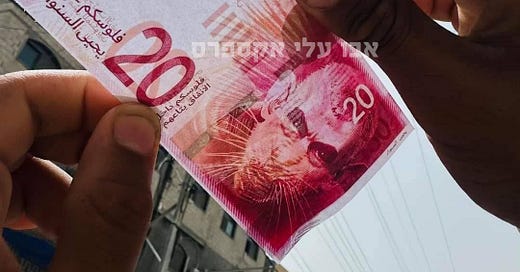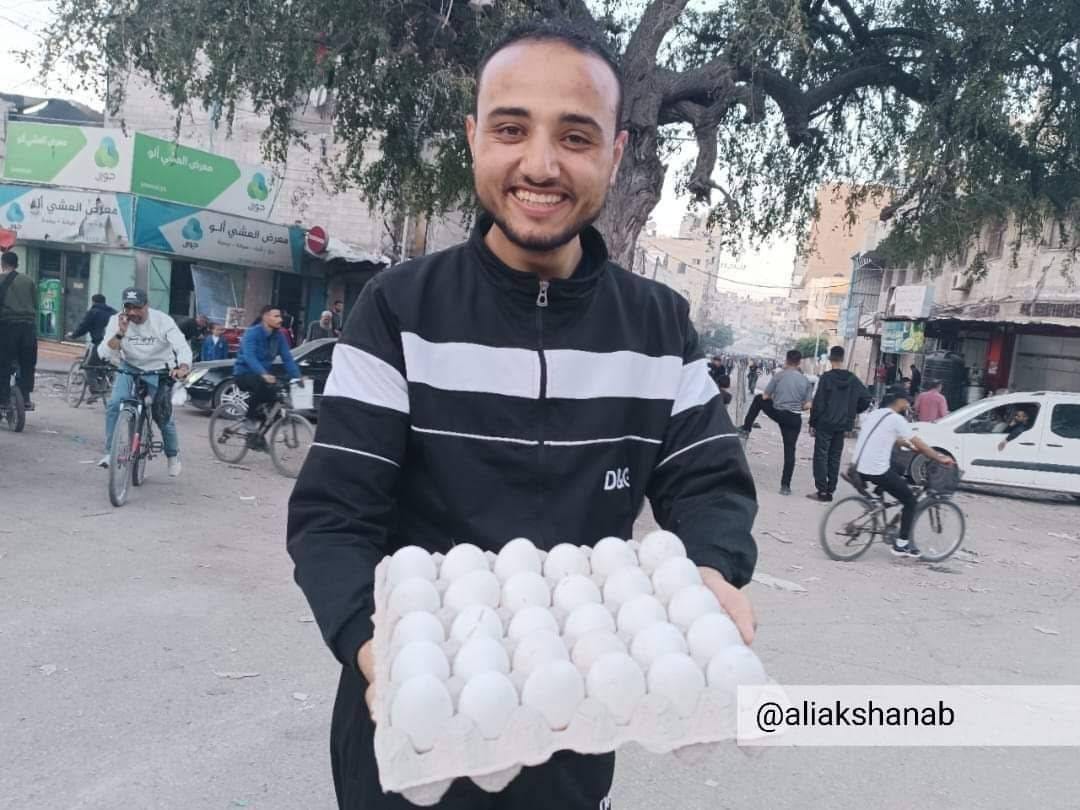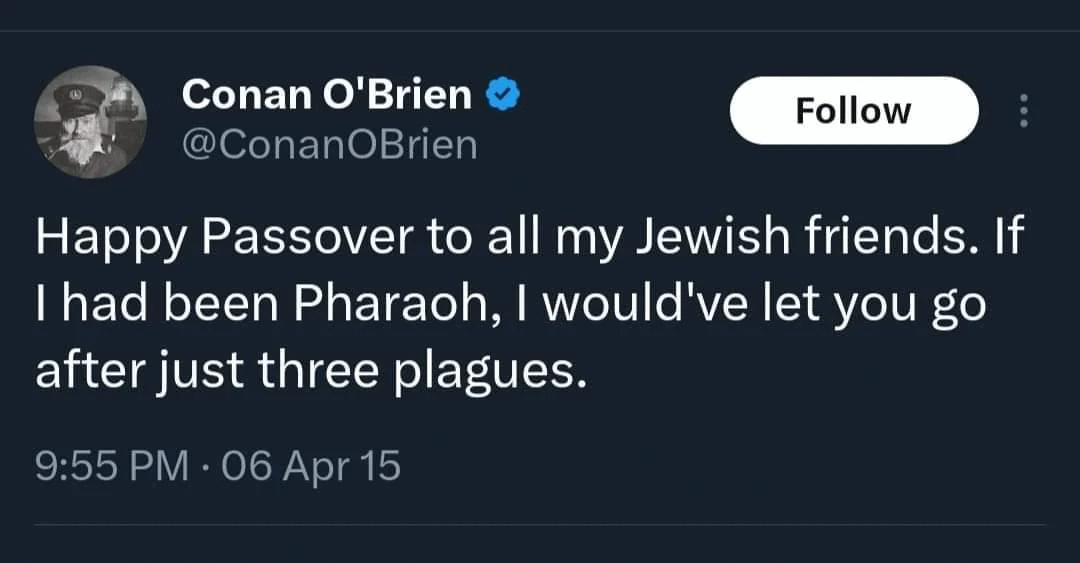Tags: 6 Min Read; Relief!
Mail
Birobidzhan has a U.S. Twin City?
Ack. (Small gag.)
Birobidzhan is twinned with Beaverton Oregon
Reminds me that Seattle is twinned with Beer Sheva, Israel. (Less weird than Birobidzhan, to my eyes.)
Amazing Rant...
That amazing rant by the Iranian woman is fascinating and heartbreaking. Made sense to me. Exactly what Netanyahu does not want to hear….
How Raf Feels
From an essay by Hana Schank in the Atlantic [PDF here]:
...I check my Twitter feed. I have always been a news junkie. But I have missed nothing. The news seems to be not just familiar but actually repeating itself. Something bonkers happened in the White House. People are dying in a country I’ve never been to. A company did something possibly illegal. There was a house fire in the Bronx.
That's how I feel. Raf might write:
The news keeps repeating itself. Hezbollah shoots rockets at northern Israel. The Israeli Army bombed Hezbollah buildings and personnel. Tensions with Iran are high. The IDF blew up a building in Gaza. The IDF withdrew from an area in Gaza. Some aid trucks entered Gaza. The Israeli government has no plan and is tied up in knots, unable to agree on important matters of domestic policy. Republicans in the U.S. Congress delay American aid to nations at war.
Hana's essay continues:
...I take the subway to doctor appointments. I don’t take out my phone, I just sit. My brain is quiet, which I find suspicious, but also soothing. Before the accident I went to yoga retreats and tried meditation. I said things like “I just need to unplug.” Apparently what I needed was to get hit by a truck. Perhaps I have discovered the secret to a peaceful mind, and it is traumatic brain injury. I fantasize about opening an expensive spa where busy people pay me money to whack them on the head with a baseball bat.
...
For now, in this liminal space between the old life and the new one, I often catch myself staring at my children. They have never been more beautiful. I chalk this up to the magic of braces––their teeth are finally coming into alignment––but I know this is ridiculous. They are beautiful because they are alive. I look at them, and I sit with the silence. Today, it is mine. Tomorrow, it may not be.
Bringing me to Thomas Friedman
Today I listened to Ezra Klein interview Thomas Friedman (Transcript here-23 pages, PDF here). The interview is from months ago. The best (only?) test of news: How it ages.
Thomas Friedman ages well.
A few of his observations and excerpts:
Israeli politics and actions are hysterical due to the hostages. Until they are all returned, Israel can't cool off and collect itself.
“It may not have been a conscious decision by Sinwar, the Hamas leader, but I believe he certainly understood the benefits of [the October 7 attack and Israeli counterattack], that he has been trading the lives of Gazan civilians for one of the greatest public relations coups by any Palestinian against any Israeli government, getting Israel delegitimized on the world stage and hauled before the International Court of Justice.”
Thomas tells people: “If you want to engage the topic of Israel or Palestine, you have to be able to keep three things about each side in mind:
“On Israel, the three thoughts are that Israel is an amazing place. What it’s built in 75 years is amazing by way of ingathering of exiles, of culture, of revival of literature, of science, technology, agriculture. Israel, it’s an amazing achievement, number one. Number two, Israel does really bad stuff sometimes, particularly in the West Bank, steals Palestinians’ land, allows settlers to kill Palestinians with impunity, lets Israeli Arabs be treated as second-class citizens. And third, Israel lives in a crazy, dangerous neighborhood, and the weak don’t survive.
Now, the same, I believe, is true with Palestinians. Thought number one, Palestinians suffered what they call the Nakba, a communal tragedy. Another people, an indigenous people but another people, came back in large numbers to claim their historic homeland. And even if they were ready to share it, in the end, for Palestinians, it resulted in a mass refugee population being created of people who were driven out or left by fear. And it was a real communal tragedy that no community should ever want to endure. And they’re calling it a Nakba. A great tragedy is not an exaggeration.
Number two is Palestinians do bad and stupid stuff. They missed enormous opportunities. They’ve fought each other. They’ve done vile things to Jews. They have had a government that tolerated too much corruption. They do bad stuff.
And third, Palestinians live in an incredibly dangerous neighborhood that has often exploited them [Palestinians]. There’s a phrase in Arabic for many years from 1948 until the present. It said, no voice shall be louder than the battle. Every Arab dictator loved to use that quote, "no voice shall be louder than the battle."
”That was saying no voice should be louder than the battle for Palestine.” “Therefore, don’t pay attention to my autocracy and my corruption. Let’s just talk about Palestine. They [Palestinians] were used by the neighborhood in ways that were unfair and deeply detrimental to their cause.”
”And unfortunately, the world is dynamic. It’s complicated. And if you can’t hold all six of these thoughts in your head at the same time along with the seventh, that one of the greatest tragedies is that, when Israelis were ready to make peace, Palestinians weren’t and, when Palestinians were ready to make peace, Israelis weren’t, which is common to both of them. Really, if you can’t hold those seven thoughts in your head at the same time, really, don’t come to this story.”
”And I have a very simple rule. I’m for a two-state solution. I’m for two-states for two people. If you’re for that, you’re my friend. And if you’re not for that, you’re not my friend.”
Bringing us to… Visibility
(Give this a minute, it might work....)
Mark Manson (a guru of mine) asks: Is there such a thing as too much self-awareness? For decades, psychologists, therapists, philosophers, and self-help gurus urged us to “know thyself.” But is there a tipping point where self-awareness turns into self-obsession, and then into unhelpful self-consciousness? (His full video on this, if of use. 15 Min, in English.)
In the interview mentioned above, Thomas Friedman says something powerful of this kind:
“I would say that there are no two national movements in the history of national movements who have had more visibility on the world stage than the Zionist national movement and the Palestinian national movement. What would the Kurds give for one day of publicity that Palestinians have had or normally get or Israelis for that matter? What would Yazidis give for that?”
“I think one of the problems has been that maybe there’s been too much attention to both sides here by the world. And it’s given both inflated senses of themselves and an unwillingness at times to compromise when they should be.”
Negative effects from overmuch self awareness (individually) or publicity (societally). Antidote that.
Learning Lessons
At the seder I was asked “How big the next blockade of Gaza needs to be?” I replied: Blockades never work %100. Israel spent billions on the “blockade” of Gaza. Result? Hamas had everything it wanted: Unlimited money, kalashnikovs, RPG’s, ammunition, rockets, tunnels and underground data centers. (Even a couple of months into the war, military equipment was being found in food shipments to Gaza.) Spend ten times more on a blockade? At best that means it will take ten years to bring in what used to take one year. Maybe.
The Berlin Wall wasn’t perfect (there is a whole museum dedicated to its imperfections).
I am always reminded of the French film A Prophet that shows how porous prisons are. (Yes, the film is drama not documentary, but we regularly see in the news about tools, phones and contraband smuggled in to prisons.)
Blockades
Blockades (and prisons) are not solutions. They are punts. They punt problems into the future. The Gaza “blockade,” which did not prevent October 7, is exhibit A in a long list of such examples: The Maginot Line (WWII, France); the Bar Lev line (Yom Kippur War, Israeli Sinai). We could go on. I am concerned that the lesson of “blockades are not solutions” is not being learned.
Refuse To Play The Game
I am more hopeful that a growing body of Israelis is coming to understand that “all out” military responses are not the only option. The recent exchange with Iran is supporting evidence that this lesson is being learned. I heard Thomas Friedman discuss how India in 2008 did not respond militarily (PDF here) to the Pakistani attack. Indian leadership knew that if they made the obvious counterattack:
…military response would have quickly obscured just how outrageous and terrible the raid on Indian civilians and tourists was; “the fact of a terrorist attack from Pakistan on India with official involvement on the Pakistan side” would have been lost. Once India retaliated, the world would immediately have had what Menon [India’s foreign secretary at the time] called a “ho-hum reaction.” Just another Pakistani-Indian dust-up — nothing unusual here.
Moreover, Menon wrote, “an Indian attack on Pakistan would have united Pakistan behind the Pakistan Army, which was in increasing domestic disrepute,” and “an attack on Pakistan would also have weakened the civilian government in Pakistan, which had just been elected to power and which sought a much better relationship with India than the Pakistan Army was willing to consider.” He continued, “A war scare, and maybe even a war itself, was exactly what the Pakistan Army wanted to buttress its internal position.”
In addition, he wrote, “a war, even a successful war, would have imposed costs and set back the progress of the Indian economy just when the world economy in November 2008 was in an unprecedented financial crisis.”
In conclusion, said Menon, “by not attacking Pakistan, India was free to pursue all legal and covert means to achieve its goals of bringing the perpetrators to justice, uniting the international community to force consequences on Pakistan for its behavior and to strengthen the likelihood that such an attack would not take place again.”
I like to think that the Gaza war, six months in at present, and easily another three to nine to go, is making a growing number of Israelis think similarly.
One can hope it is a maturation of decision making philosophy. I like Joshua Rothman’s perspective: “Your life choices aren’t just about what you want to do; they’re about who you want to be.” (Full essay & book review. PDF here.)
From Steven Johnson’s How We Got To Now (a book about decision making):
“The craft of making farsighted choices—decisions that require long periods of deliberation, decisions whose consequences might last for years,” he concludes, “is a strangely under-appreciated skill.”
Postmark...
Iran
Above: Tabriz, Iran: A brave Iranian woman confronts a security man who recorded her after wearing a hijab "carelessly." (17 seconds)
Gaza: PsyOps Part 1
Gazans report that the IDF dropped fake 20 NIS bills from the air in Deir al-Balah (central Gaza) with the portrait of "Sinwar the Mouse" written on them: Your money is with Sinwar...
Above: Gaza sources: a dramatic drop in the price of eggs in the north of the Gaza Strip. The price of a case of 30 eggs is now about 35 NIS [Israeli Shekels, the primary currency used in the Gaza Strip], this after the price of one egg had increased in recent weeks to 8-10 NIS.
Above, PsyOps Part 2: The excitement of receiving the IDF leaflets. The best attraction in the city. And it's free.
Not something you see every day... (leafleting from the sky)
Rafah, southern Gaza Strip: The arrival of the massive aid trucks in the Gaza Strip in recent days created a surge in the markets. A Gazan merchant presents his wares: One hundred thousand cans. The price: half a shekel per box.
He is asked: Why so cheap?
Answer: So that the people will take it. [As people won't pay more—supplies are plentiful now]
[He forgot to mention that all the boxes he is now selling for only half a shekel due to oversupply, came as free humanitarian aid to the people of Gaza and should not cost even half a shekel...]
Nablus (West Bank), PsyOps Part 3
Palestinians report that at the end of a wave of arrests carried out by the IDF forces in the Askar refugee camp in Nablus, the soldiers handed out ashtrays in which the portrait of Yahya Sinwar was stamped with the inscription:
"Turned Gaza into ashes"
Relief Area
Alef
Bet
Spectacular documentation by the talented photographer Alvand Visi: The traditional Hazar Daf "Thousand Daf Drums" ceremony, to mark the coming of spring, was held yesterday in the Kurdish village of Falangan in the Iranian Kurdistan region (Sandaj district).
Daf players from all over the country come to participate every year in the ceremony, which is also attended by many tourists.Jews lived in Kurdisatan through the 1950's. (I have met a number of folks who descend from this community.) A moving book about this community is My Father's Paradise. (Thanks Mom!)
Gimmel
Dalet: Be the Jew the anti-semites think you are
Hey
Walking home after seder in Jerusalem the moon was high and full. The air clear and cool. The waft of blossoms all around. I have often thought: This is a place of kingdoms and battle.
The shmura matza was thin and crisp. Perhaps the best I have experienced.
Hag sameach.
Stay well,
Raf
(Thank you A.K., A.L., B.R., J.D.)











Why would you think that what that brave Iranian woman says is "Exactly what Netanyahu does not want to hear"? I'd think the opposite would be true.